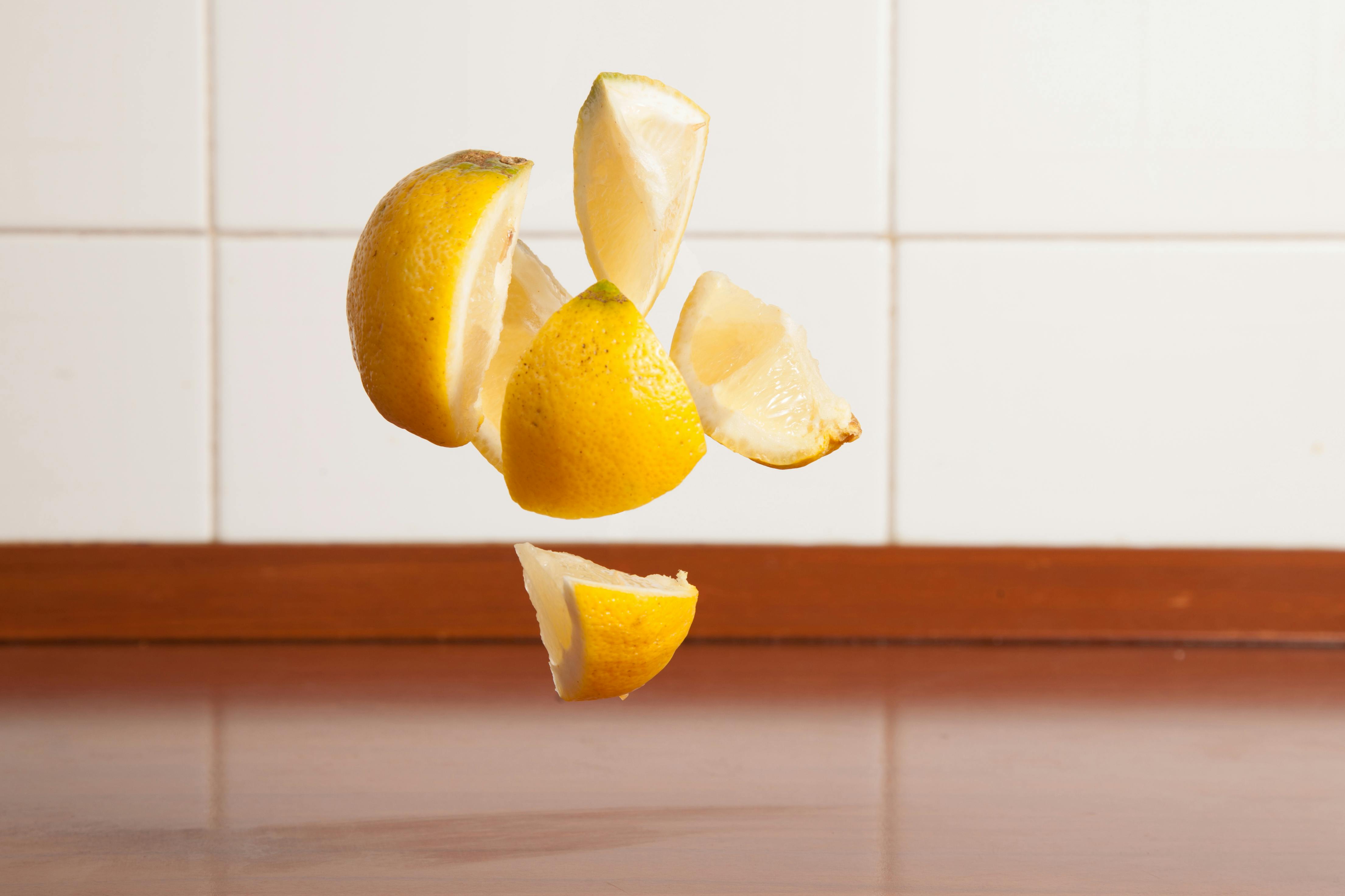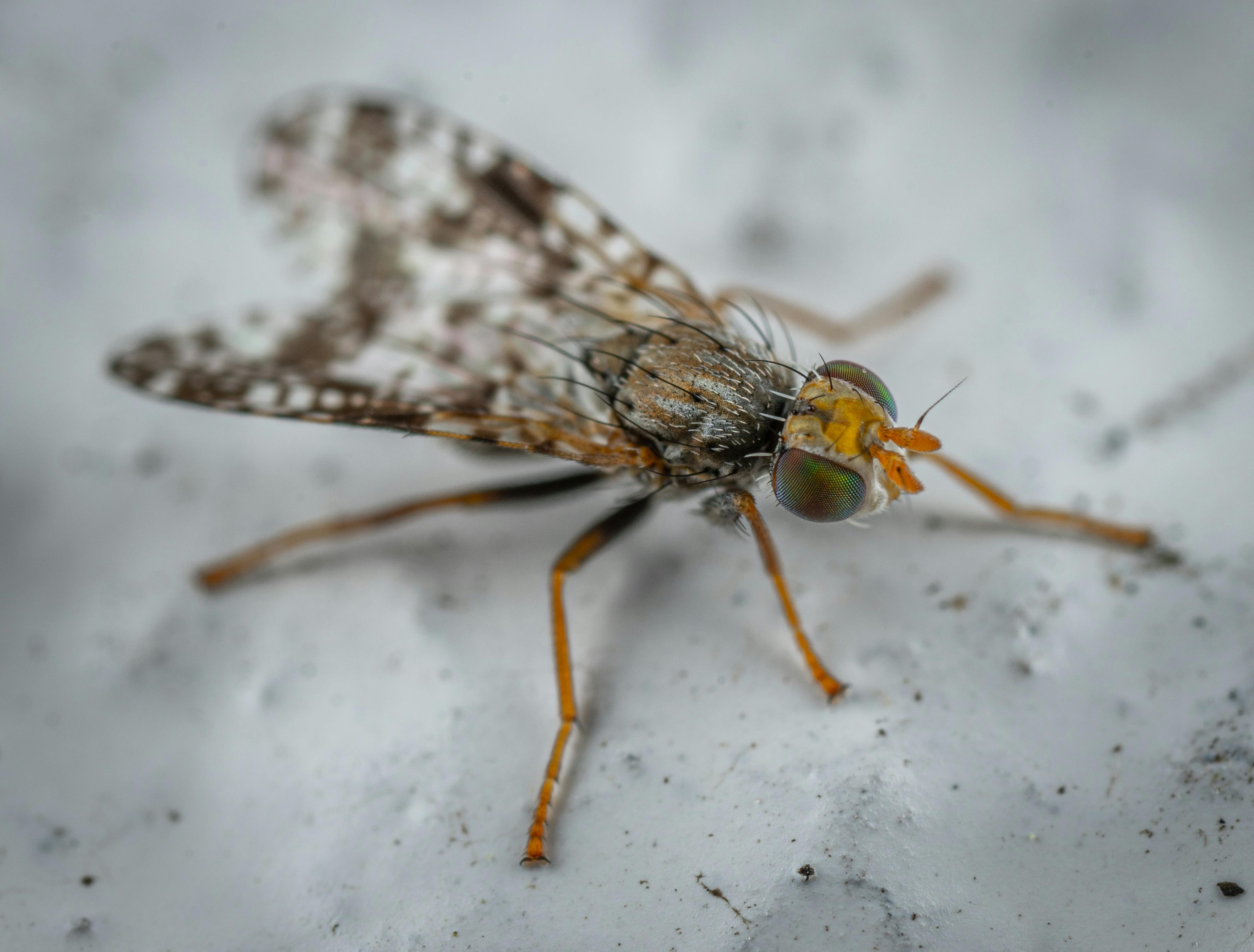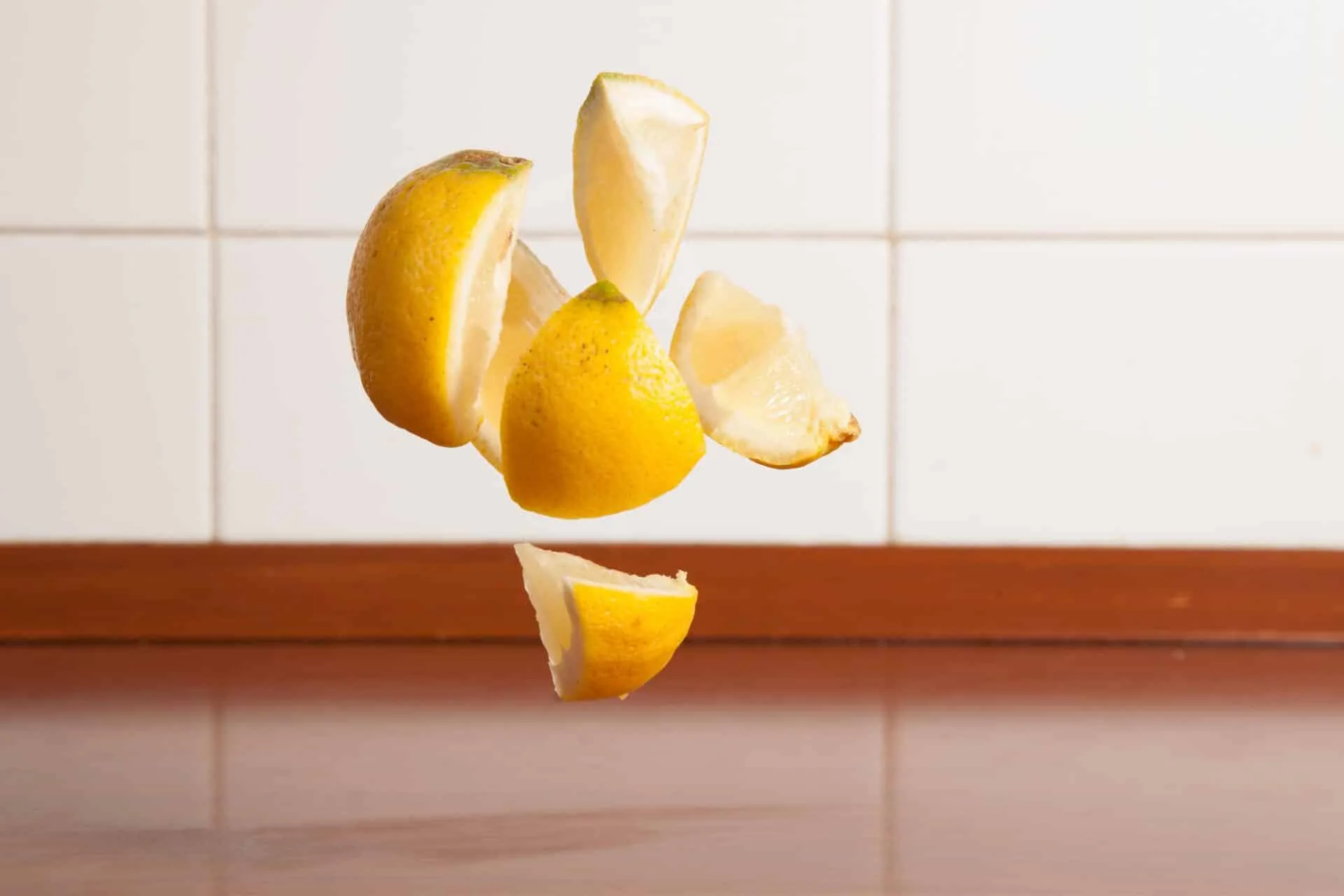Are Fruit Flies harmless? This is a question that has been asked by many people. Fruit flies are small, flying insects that are commonly found in homes and businesses. While they may be annoying, it’s important to know whether or not they can pose a threat to people and their property. In this article, we’ll take a look at the facts about fruit flies and whether or not they can be considered harmless.Fruit flies are small, flying insects that are attracted to the sugary, fermenting aromas of ripening or rotting fruits and vegetables. They are one of the most common and widespread of all fly species. Fruit flies belong to the genus Drosophila, and they come in a variety of colors, such as black, brown or yellowish-brown. They have red eyes and measure just 1/8 to 1/4 inches long.
Are Fruit Flies Harmful?
Fruit flies, also known as Drosophila melanogaster, are small insects that can be found in a variety of habitats around the world. While these insects are not generally considered to be harmful, they can become a nuisance when they enter your home and reproduce. Fruit flies feed on decaying fruit and vegetables, so if you have any decaying produce in your kitchen, you may find yourself with an infestation of fruit flies.
Fruit flies pose a few different risks to humans and animals. For starters, they can spread bacteria and other pathogens that may cause food poisoning or other health issues. In addition, they can contaminate food sources by laying eggs in it or leaving behind droppings. Finally, fruit flies can become very annoying when they swarm around certain areas of the home.
Fortunately, there are some simple steps that you can take to prevent or reduce the presence of fruit flies in your home. Keeping your kitchen clean and free of any rotting or decaying produce is one way to prevent them from entering your home. If you already have an infestation, there are some insecticides that you can use to kill the adult flies or larvae that may be present in your kitchen.
Overall, while fruit flies are not generally considered to be particularly harmful pests, it is still important to take the necessary steps to keep them out of your home and away from any food sources. Taking these preventive measures will help protect you from any potential health risks associated with these pests.
How to Prevent Fruit Flies
Fruit flies can be a nuisance in your home or business. They come in on ripe fruits and vegetables, and once they are inside, it can be difficult to get rid of them. The best way to prevent fruit flies is to practice good sanitation habits. Clean up any spills or crumbs quickly and keep the area around the trash can clean and dry. Store all fruits and vegetables in sealed containers to prevent them from attracting fruit flies. Make sure all garbage is disposed of regularly, as this will help limit the number of food sources available for the fruit flies.
In addition, you can use natural methods to discourage fruit flies from entering your home or business. Citrus essential oils such as lemon, orange, or lime are known to repel fruit flies naturally. Place several drops of these essential oils on cotton balls around your home or business, and replace them regularly to maintain their effectiveness. Vinegar is also known to repel fruit flies; you can place a small container of vinegar around the area that you want to keep clear of fruit flies.
If prevention methods fail and you find yourself with a fruit fly infestation, there are several steps you can take to get rid of them quickly. Start by using a vacuum cleaner or broom and dustpan to remove as many of the adult fruit flies as possible from the area where they are present. Next, set up traps using apple cider vinegar mixed with a few drops of dish soap; place these traps around the affected area and leave them overnight. Finally, use an insecticide specifically designed for eliminating fruit flies; follow all instructions on the packaging carefully when using this product.
Are Fruit Flies Dangerous to Humans?
Fruit flies are generally considered harmless to humans, since they do not bite or carry any diseases. However, they can be a nuisance in the home and may contaminate food with their droppings. Fruit fly infestations are most commonly found in kitchens and other areas where there is an abundance of food sources.
Fruit flies lay their eggs on ripened fruits and vegetables, so it’s important to keep these items covered or refrigerated when they’re not in use. Additionally, it’s important to keep counters free from crumbs and other food particles that may attract fruit flies. Keeping your kitchen clean and free of clutter will go a long way towards preventing fruit fly infestations.
In addition to being a nuisance, fruit flies can be dangerous for people with allergies or respiratory problems. The bacteria and dust particles that these insects bring into the home can cause allergic reactions or aggravate existing respiratory conditions like asthma. People who have allergies should take extra precautions when dealing with fruit fly infestations by wearing protective clothing and using insect repellents if necessary.
Overall, while fruit flies are not considered dangerous to humans, they can still cause a great deal of annoyance in the home due to their presence and potential contamination of food sources. If you find yourself dealing with a fruit fly infestation, it is best to take preventative measures like keeping your kitchen clean, storing produce properly, and wearing protective clothing if necessary in order to reduce any potential health risks associated with them.
Are Fruit Flies Harmless to Pets?
Fruit flies are common household pests, and while they can be a nuisance, generally speaking they are harmless to pets. Fruit flies feed on overripe fruits and vegetables as well as fermenting liquids like beer and wine. They often congregate in kitchens or near garbage cans and will lay their eggs in areas where there is a food source.
Fruit flies can also be found in pet food bowls or water dishes if the pet food is left out for too long. In this case, the fruit flies will lay their eggs in the pet food or water and the larvae will hatch from them. However, the larvae pose no real threat to pets as they are not harmful to them.
In some cases, fruit flies can become a nuisance to pets if there is an infestation in their environment. The fruit flies may startle pets or even land on them, causing discomfort for the pet. If this happens, it is best to contact a professional pest control service to get rid of the fruit fly problem as soon as possible.
Overall, fruit flies pose no real health risk to pets and do not cause any diseases or harm them directly in any way. As long as your home is kept clean and free of excess food waste or debris that could attract these pests, you should have no problem keeping your pet safe from them.

How Do You Get Rid of Fruit Flies?
Fruit flies, also known as vinegar flies, are pesky little insects that can be a real nuisance in the kitchen. They’re attracted to ripened fruits and vegetables, as well as fermented liquids like wine and beer. If you’ve noticed a sudden increase in fruit fly activity in your home, there are several methods you can use to get rid of them.
The first step is to identify where the fruit flies are coming from. If you have any over-ripe or rotting produce in your kitchen, it’s likely that’s the source of your infestation. Thoroughly check your pantry and fridge for any food items that may have gone bad and remove them immediately.
Next, create a homemade fruit fly trap by combining apple cider vinegar with a few drops of liquid dish soap. The vinegar attracts the flies while the soap breaks down the surface tension of the liquid so they can’t escape once they land on it. Pour the mixture into a jar or bowl and cover it with plastic wrap secured with a rubber band. Poke several small holes into the wrap so that the fruit flies can enter but not escape. Place this container near where you’ve noticed most fruit fly activity; after several hours you should find many trapped inside.
Finally, keep your kitchen clean and free of potential food sources for fruit flies by wiping down countertops and taking out the garbage regularly. Additionally, make sure all fruits and vegetables are stored properly in airtight containers or bags to prevent any odors from attracting more pests into your home. By taking these steps, you can quickly get rid of those pesky fruit flies for good!
Do Fruit Flies Spread Disease?
Fruit flies are commonly found in kitchens and other areas where food is stored. They are attracted to the food we eat and can contaminate it with bacteria, making them potential disease carriers. While fruit flies do not typically spread diseases directly from one person to another, they can spread illnesses indirectly by carrying disease-causing bacteria from one place to another.
Fruit flies are known to carry a range of bacteria that can cause food poisoning, such as Salmonella and E. coli. These bacteria can be spread through contact with contaminated surfaces or through contact with infected food, water, or other objects that have been contaminated by the fruit fly.
In addition to carrying potentially harmful bacteria, fruit flies may also act as vectors for viral diseases such as Typhoid and Cholera. While these illnesses are rarely spread through direct contact with fruit flies, they can be transmitted if a person comes into contact with an infected surface or object that has been contaminated by a fruit fly.
While there is no definitive answer as to whether or not fruit flies spread disease, it is important to keep in mind that they can potentially carry disease-causing bacteria and viruses from one place to another. To reduce the risk of exposure to these pathogens, it is important to take measures such as properly storing food and regularly cleaning kitchen surfaces where these insects may be present.
How Long Do Fruit Flies Live?
Fruit flies are tiny insects that are found all over the world. They have a short lifespan of around 30 to 45 days, but they can live for up to two months in optimal conditions. The female fruit fly lays hundreds of eggs during her lifetime, which helps ensure the survival of the species.
Fruit flies go through several stages during their lifecycle. They begin as eggs, then hatch into larvae, which feed on decaying fruit and vegetables. After a few days, the larvae pupate and become adult fruit flies. Adult fruit flies feed on sugary substances such as fruits and nectar. They will also feed on other substances like fermented foods and alcohol if necessary.
The lifespan of a fruit fly depends on several factors such as temperature, humidity, food availability, and predators. In warmer climates with plenty of food sources and no predators, fruit flies can live for up to two months. However, in cold climates with limited food sources or increased predation pressure, their lifespans can be much shorter. Additionally, poor nutrition or dehydration can significantly reduce the lifespan of a fruit fly.
Fruit fly populations are often managed by humans to help control disease-carrying pests in homes and outdoor spaces such as farms or greenhouses. Insecticides and traps are commonly used to reduce the number of adult fruit flies in these areas and help maintain healthy populations levels.
Overall, the average lifespan of a fruit fly is around 30 to 45 days under natural conditions but can be increased or decreased depending on environmental factors such as temperature or predators. With proper management practices in place, it is possible to reduce disease-carrying pests while maintaining healthy populations levels for fruit flies in both indoor and outdoor environments.

Conclusion
Fruit flies are generally harmless and more of a nuisance than a serious threat. In some cases, however, they can be carriers of food-borne illnesses and disease-causing bacteria. Keeping fruit flies out of the home is the best way to avoid any potential health hazards. Fruit fly traps, insecticides, and other pest control methods can be used to help reduce their numbers. Additionally, proper sanitation and food storage is key in preventing infestations in the home.
Overall, fruit flies are typically just an annoying household pest rather than a serious health threat. However, it is important to be aware of the potential risks associated with them and take steps to keep them out of the home.



